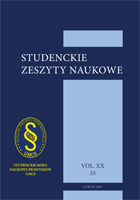Wielojęzyczność jako wyzwanie w procesie stanowienia i wykładni prawa Unii Europejskiej
Multilingualism as a Challenge in the Process of Lawmaking and Legal Interpretation of European Union Law
Author(s): Joanna Szponar-SerokaSubject(s): Language studies, Translation Studies, EU-Legislation
Published by: Wydawnictwo Naukowe Uniwersytetu Marii Curie-Sklodowskiej
Keywords: multilingualism; European Community law; lawmaking; legal interpretation; legal language; legal translation;
Summary/Abstract: Since the creation of the European Union, its multilingualism has been one of its basic rules and everyday practical assumption. Currently, European Community law refers to 28 countries and is available in 24 official languages, all of which have equal status and in which European Community legal documents are made and published. The simultaneous creation of the originals in multiple languages results in the equal authenticity of each version. The multilingualism of the law, the equality of the language versions and applying law in different legal systems, cause many difficulties in the process of lawmaking, applying law and legal interpretation of European Community law. It is difficult to decide, when it comes to European Community law in various languages, whether we have to do with creating law or translating it. The legal status of the translated originals indicates that the process of translating did not occur, yet in the practical sense it is undeniable that these texts are translations, and ones of a very particular kind. The phase of translating a legal document into other languages is probably the most difficult stage of the process of creating the European community law. The nature of making European Community law is very specific, hence the discrepancy and linguistic incoherence of the language versions, which result in considerable difficulties of the legal interpretation. All authentic language versions of European Community legal documents have equal legal force and the same legal consequences, which means that together they create a common meaning of European Community law and none of them may be rejected during the interpretation of the law.
Journal: Studenckie Zeszyty Naukowe
- Issue Year: 20/2017
- Issue No: 33
- Page Range: 93-104
- Page Count: 12
- Language: Polish

